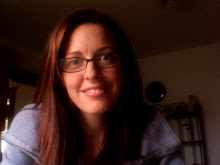Hannah's (70 year-old) Child
Today is Stanley Hauerwas' birthday. I've been reading him since my first year pastoring here in McAdam, and he's probably been more of an influence than I've even realized. Now I've gotten to know him, in a manner of speaking, through his memoir Hannah's Child.
It's a disarming book. It's all too easy to succumb to assumptions about Hauerwas based on his notoriously colourful language or his bold pacifism or his provocative way of putting things in his writings (I'm thinking right now of the title of his little article "Why Gays (As a Group) are Morally Superior to Christians (as a Group)), or even his being named "America's Best Theologian" in September 10, 2001 (!) issue of Time. Reading the book is in these respects something of a shock for those of us who only know him from a distance. It's sometimes painfully honest, particularly as he tells of his first wife's mental illness and the long suffering of their family during those decades, but also in his descriptions of life on the faculties of both Notre Dame and Duke Divinity School. What I couldn't escape as I read it was that the book itself is a generous act of friendship from one who has done much to emphasize the centrality of friendship for the Christian life.
During the years that Anne's illness dominated our lives, I discovered the gift of friendship. Indeed, I discovered I had a gift for friendship. I love and trust people. My love and trust may at times be unwise, but I prefer the risk. I am not stupid. I do not like fools or pretension. But I love interesting, complex, and even difficult people. Thank God, they often love me. (p. 144)The church could learn a few things about sharing and bearing burdens through careful attention not just to Hauerwas' advice but now through his example.
The "truthfulness of Christian speech" has been another central emphasis in Hauerwas' writing, and here he again lives that for which he has long argued. This is a book about truthtelling, and it is honest even in its assessment of its own honesty.
It is not easy to see ourselves truthfully and without illusion. The difference between a loving but honest description and cruelty is often not easily determined. Son of my father, I have no capacity for cruelty, though at times I may be stupid. I hope the descriptions of my life and those who have made my life possible are determined by love, but I will have to trust the reader to tell me where I have been stupid. (p. 288)That quote brings another thing to mind. Hauerwas has always been funny, and he is often hilarious as he reflects upon his own life. A few samples:
"The great benefit of being a member of a fraternity was that I had to learn the Greek alphabet." (p. 8)
"I was put in the odd position of having to argue that American society in 1975 was sane." (p. 124)
"...over the years I have come to the judgment that Southern civility is one of the most calculated forms of cruelty. I do not know if Methodists learned it from Southerners or vice versa." (p. 180)
"...graduate school was that strange place where professors get paid for students to educate one another." (p. 196)
"I cannot resist wanting to run the world, even though I am obviously no good at it." (p. 232)
"I am an academic, but I pray before class and have been published by InterVarsity Press. That is a lot to overcome if you want academic respectability." (p. 256)
Perhaps the greatest gift in the book, though, is the sustained reflection on what it means to be a theologian. The sense of gratitude for the work he has been given to do would, I suspect, help anyone to learn to be thankful for their work, but for those of us who are called, whether in the church or the academy, to speak of God to his people, this aspect of the book is a great incentive to revisiting our sense of vocation. Stanley Hauerwas has kept his understanding of his work rooted to the life of the church on every page of this book. In the course of the narrative, he reflects a great deal on his family, and these lines stand out:
What I hope and pray is that the way I have tried to think and write may in some small way sustain lives as good as my parents. My father was a better bricklayer than I am a theologian. I am still in too much of a hurry. But if the work I have done in theology is of any use, it is because of what I learned on the job, that is, you can only lay one brick at a time. (p. 46)I could go on and on with quotes from the book (my copy is covered in pencil marks and dog-eared pages), but there would be no point. It's well worth reading.
Hauerwas has said he wanted the book's subtitle to be "A Theological Memoir," but the publisher preferred "A Theologian's Memoir." Both are fitting. The publisher wanted the book to reach and not intimidate an audience. I hope he does gain a new audience for his theological work through what is a really fine book. It's theological, for sure, but it's also a fantastic read. I burned through it in a few days, and found I couldn't put it down.
Happy birthday, Stanley. Thanks for the gift.
Labels: Books


1 Comments:
Seems like someone you could relate to.
Post a Comment
<< Home